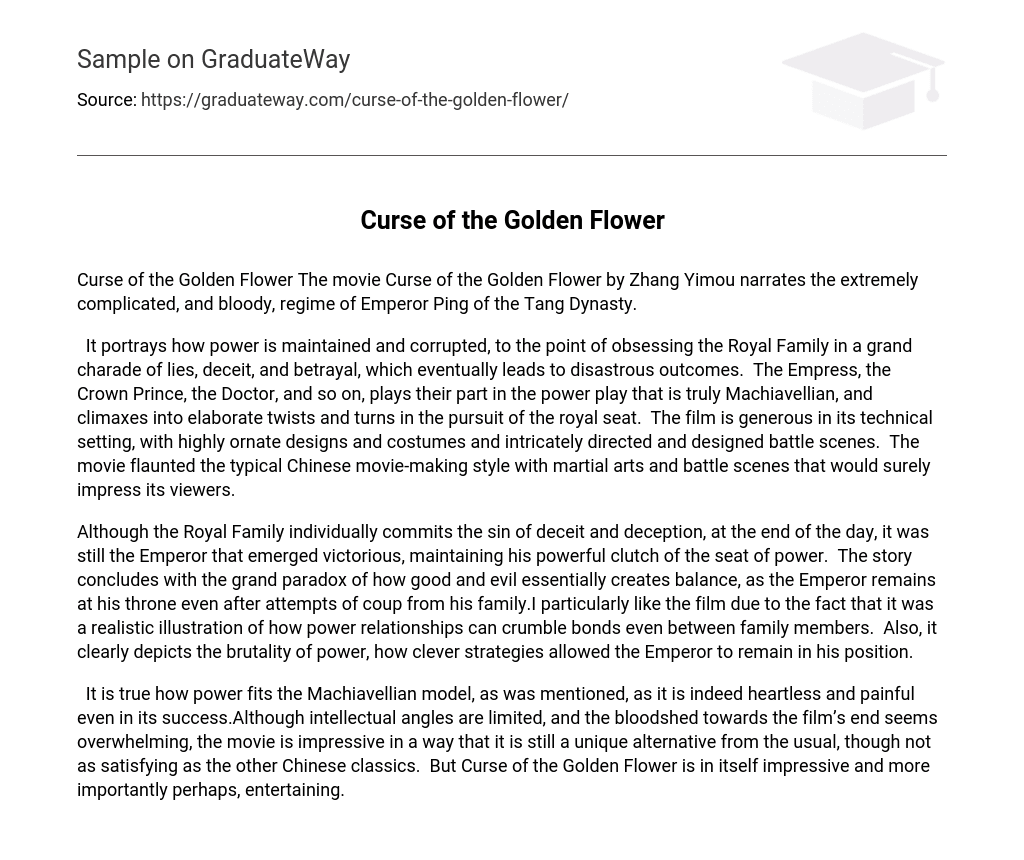Curse of the Golden Flower The movie Curse of the Golden Flower by Zhang Yimou narrates the extremely complicated, and bloody, regime of Emperor Ping of the Tang Dynasty.
It portrays how power is maintained and corrupted, to the point of obsessing the Royal Family in a grand charade of lies, deceit, and betrayal, which eventually leads to disastrous outcomes. The Empress, the Crown Prince, the Doctor, and so on, plays their part in the power play that is truly Machiavellian, and climaxes into elaborate twists and turns in the pursuit of the royal seat. The film is generous in its technical setting, with highly ornate designs and costumes and intricately directed and designed battle scenes. The movie flaunted the typical Chinese movie-making style with martial arts and battle scenes that would surely impress its viewers.
Although the Royal Family individually commits the sin of deceit and deception, at the end of the day, it was still the Emperor that emerged victorious, maintaining his powerful clutch of the seat of power. The story concludes with the grand paradox of how good and evil essentially creates balance, as the Emperor remains at his throne even after attempts of coup from his family.I particularly like the film due to the fact that it was a realistic illustration of how power relationships can crumble bonds even between family members. Also, it clearly depicts the brutality of power, how clever strategies allowed the Emperor to remain in his position.
It is true how power fits the Machiavellian model, as was mentioned, as it is indeed heartless and painful even in its success.Although intellectual angles are limited, and the bloodshed towards the film’s end seems overwhelming, the movie is impressive in a way that it is still a unique alternative from the usual, though not as satisfying as the other Chinese classics. But Curse of the Golden Flower is in itself impressive and more importantly perhaps, entertaining.





